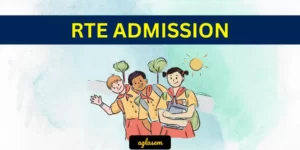rte admission 2023-24 rajasthan last date
The Right to Education (RTE) is a fundamental right recognized by the Indian government under Article 21A of the Constitution of India. It mandates free and compulsory education for all children between the ages of 6 and 14. The RTE Act was enacted in 2009 with the aim of providing equitable access to quality education for all children, regardless of their socio-economic background.
Key provisions of the RTE Act include:
- Free and Compulsory Education: Every child between the ages of 6 and 14 has the right to free and compulsory education in a neighborhood school.
- No Discrimination: The RTE Act prohibits discrimination on the basis of caste, gender, religion, or socio-economic status in admission and retention of students.
- Quality Education: Schools are required to maintain certain standards of quality in infrastructure, teacher-student ratio, and teaching-learning materials.
- 25% Reservation: The RTE Act mandates that private unaided schools reserve 25% of seats at the entry-level (Class 1) for children from economically weaker sections and disadvantaged groups.
- Prohibition of Capitation Fee: The Act prohibits schools from charging any capitation fee or donation at the time of admission.
- Teacher Qualifications: Teachers in schools must possess the minimum qualifications specified by the National Council for Teacher Education (NCTE).
- Community Participation: The RTE Act emphasizes the role of local authorities, parents, and communities in ensuring the effective implementation of the Act.
RTE has significantly expanded access to education in India, especially for marginalized and underprivileged children. However, challenges remain in terms of ensuring quality education, addressing infrastructural deficits, and enhancing teacher training and accountability.
It's important to note that RTE is a dynamic field, and there may be updates or amendments to the Act and its implementation over time.

